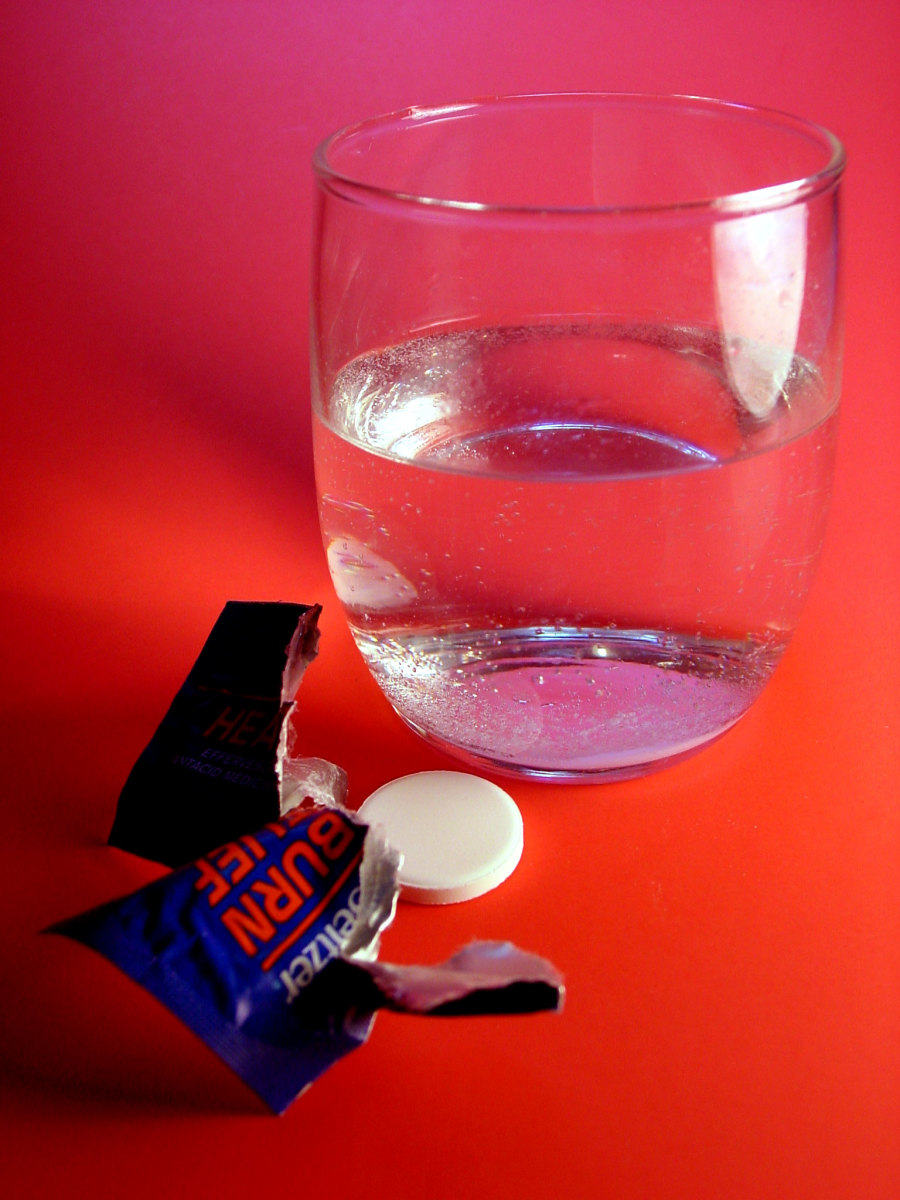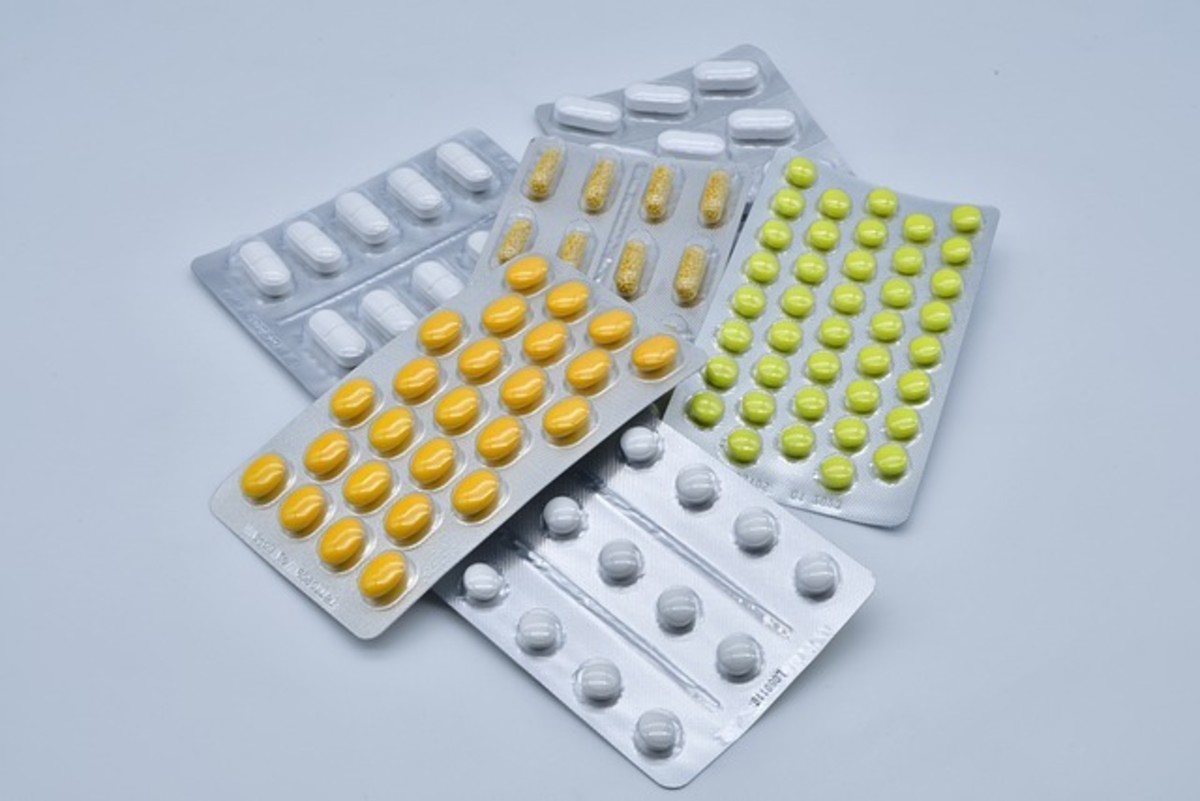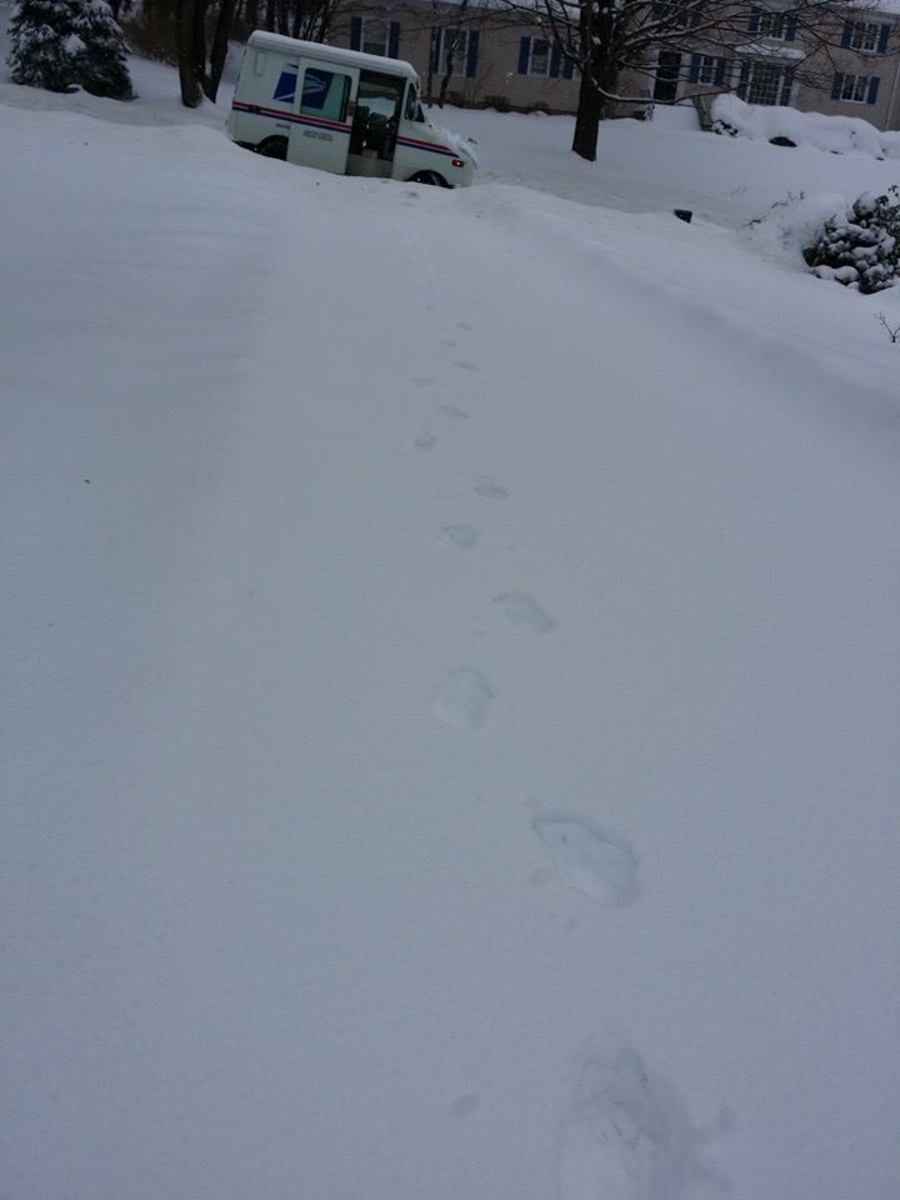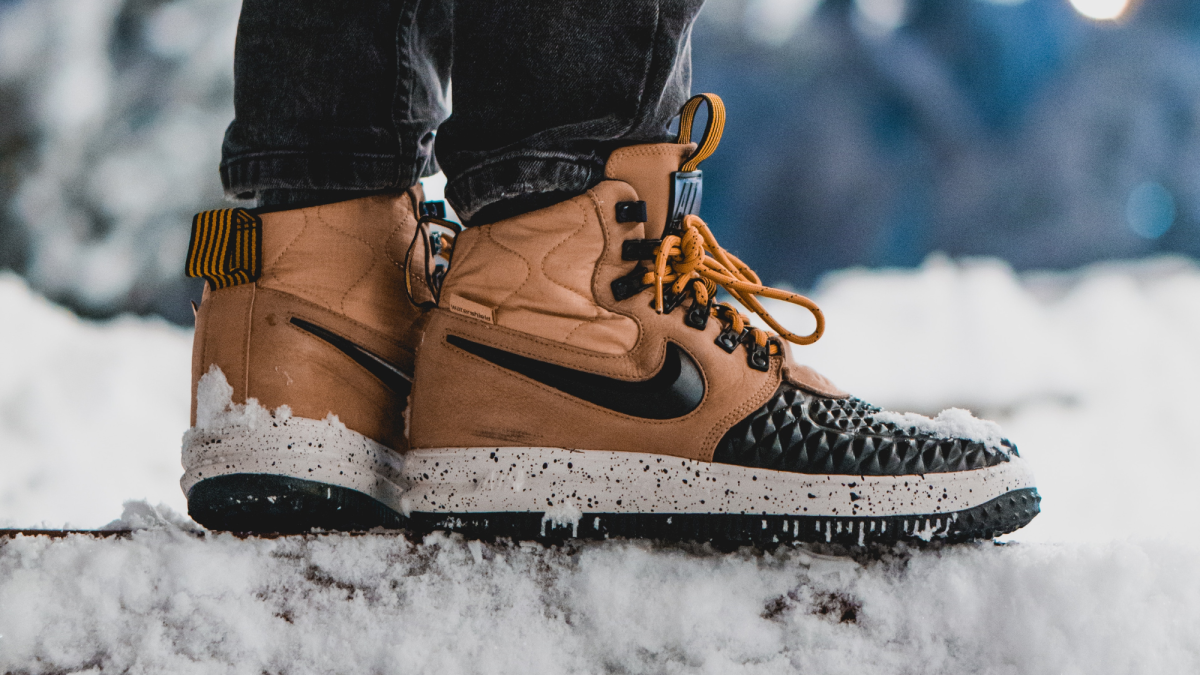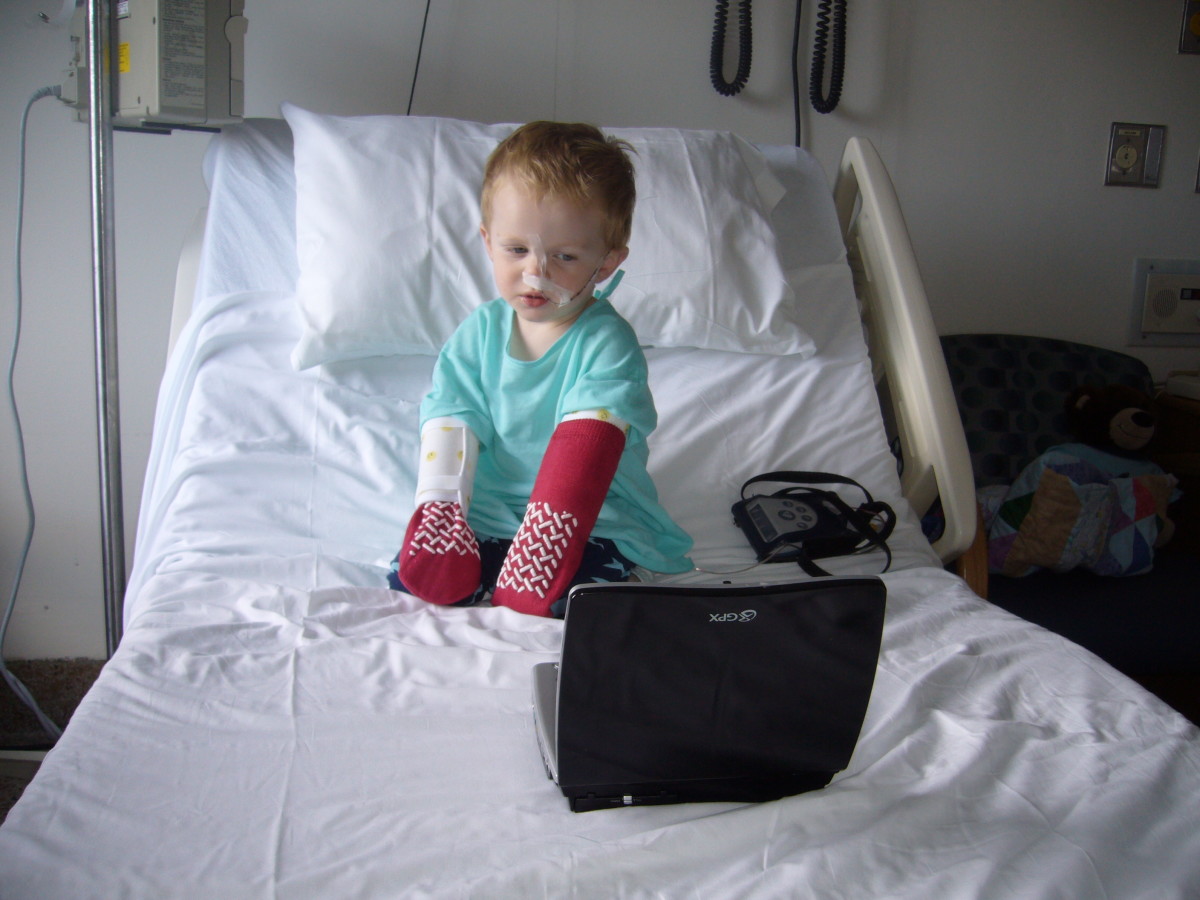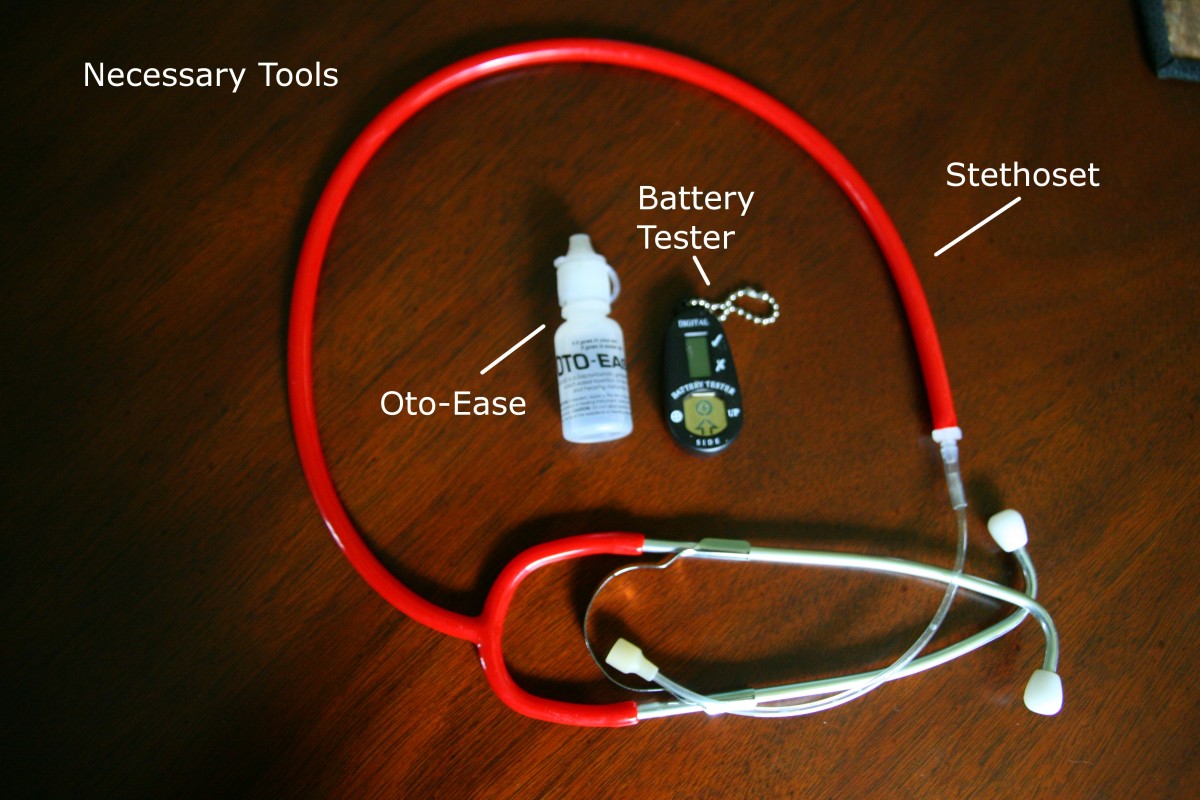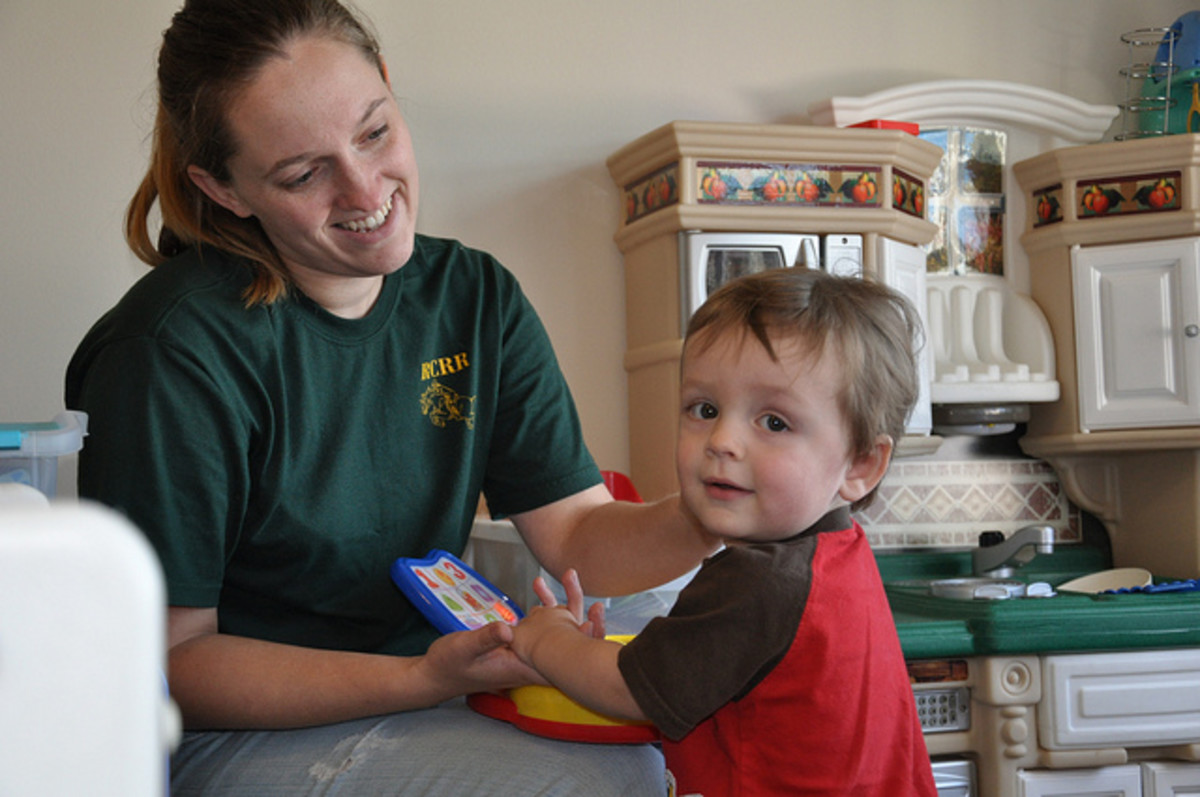Misconceptions About Your Health and Wintertime
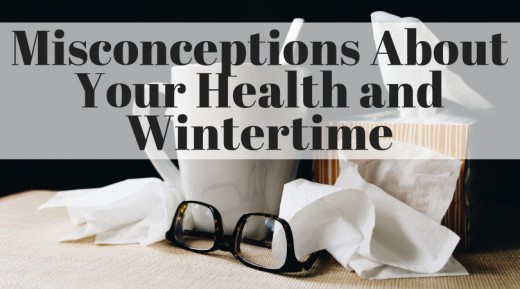
When I was younger and it got cold outside, all the rules my mother had for not getting sick came out in full force. I couldn’t have wet hair, I always had to have a hat and socks on, I was pumped full of preventative medications, hot drinks, and hot soups all winter long. I couldn’t go outside, I couldn’t play with friends, and my hands were extremely raw from washing my hands all the time.
My mom even had a purse full of all sorts of medications just in case I should display any sort of sick symptom, like coughing, sneezing, a headache, stomachache, or anything similar. Funny enough, I was also always sick, which just further motivated her to keep her regime on staying healthy strong. So if I was following all of the rules, why was I still getting sick? Obviously doing all of these things didn’t keep me from getting sick.
Are we all supposed to lock ourselves down to our individual rooms and fumigate the house with Vicks Vapor Rub to keep from getting sick? Of course not. What about all of those germs out there? What you really should be doing to stay healthy this winter is likely the opposite of all that you've been taught. And not a single one of them has anything to do with wet hair, wearing socks, or especially taking medications.
There are way too many misconceptions that have spread from generation to generation that I want to clear up today. I think you’ll be surprised which ones are true and which are not.
Quick Poll
What is your cure for sickness during cold season?
Misconception #1: You can catch a cold by going outside with wet hair.
Not true. I should begin by stating that you do not catch a cold on your own. Colds are caused by viruses. Going outside with wet clothes won't do it either. There are dangers to going outside with wet hair or clothes, but hypothermia is that danger. Even then, it would have to be cold enough outside, and you'd have to be out there long enough for it to affect you.
I certainly don’t recommend this practice, and you will be a lot more uncomfortable and cold with wet hair outside, but it will not make you sick. D.J. Verret, MD, an otolaryngologist in Dallas states, "Going outside -- with or without a wet head -- is one of the best things you can do to prevent catching a cold. Actually being cold has nothing to do with your risk of catching a cold.”
“Colds are caused by viruses or bacteria which are more often spread in the winter because of close contact from everyone being indoors. That's right, spending time outdoors can make you less susceptible to those nasty germs.”

Misconception #2: You can catch a cold by being out in the cold for too long.
The focus here should be that being cold doesn't get you sick. Honestly, if you're wearing the proper cold weather clothing, you won't get as cold and you'll likely want to stay outside and play for longer. However, getting outside and getting some exercise is more likely to keep you healthy, as most illnesses are contracted by being stuck inside in close quarters with others.
During the warmer months, sickness isn't generally an issue. You are opening the windows of your house and leaving doors open, allowing the toxins and germs trapped inside to get out, filling your home with fresh air. But during the colder months, sickness is more prevalent because people tend to keep their homes locked up tight, and keep everyone inside.
Toxins from your clothes and the bottoms of your shoes, toxins from your cleaning and bathing materials, fumes from your trash cans and toilets, and even all of the carbon dioxide that you are breathing out, build up in your home. With no way for these to escape, you make yourself very vulnerable to any virus that may possibly be brought inside your home. Get outside, and open those windows, because it's good for your health.
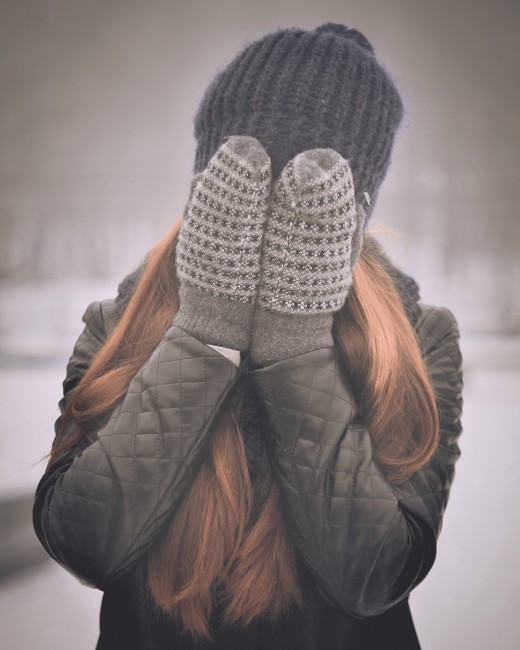
Misconception #3: You lose most of the heat from your body through your head.
You’re going to lose heat from any body part or patch of skin that is exposed to the cold. This is like saying that you can wear shorts and a t-shirt outside, but as long as you’re wearing a hat, you’re okay. Anytime you go out in cold weather (and I’m not talking about a nice, cool day), you should wear the proper cold weather clothing for the temperature.
Not only will you be more comfortable, but the right protection from the weather will help to keep your immune system strong. If you are too cold, you'll know it. Not that this will make you sick, but it will weaken your immune system. By protecting your body from the elements, just like eating the proper diet and getting plenty of exercise, you keep your body in peak condition, so that if it does encounter illness, it can easily fight it off and be stronger for it.
Depending on the temperature outside, you should even wear layers, as just one is not always enough to protect you from the cold. There’s a reason hats, mittens, jackets, and scarfs were created for cold weather conditions. Those that spend time in the snow should also consider insulated pants, fur lined boots, and a jacket with an insulated hood to go over your hat.
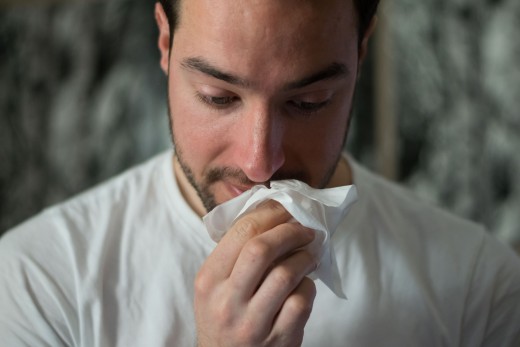
Misconception #4: A single cough or sneeze in the winter months means that you have a cold or the flu.
There are so many reasons that kids cough and sneeze without any cause for concern. In fact, it’s more likely that you are sneezing or coughing for an alternative reason like something blowing into your nose, inhaling really cold air, swallowing something down the wrong tube, or a sharp change in temperature. Even if one of these isn’t the reason, it’s likely that your body is coughing or sneezing as a way of defending itself from the sicknesses going around.
And if for some reason you do see other symptoms like a runny nose or watery eyes, it still doesn't mean that you need medications. Your body knows what it is doing. It's completely possible that you start seeing cold or flu symptoms, and then suddenly they go away, or they don't affect you that badly. Your immune system is working hard to defend you, and with each sickness you catch, you are actually building it up and making it stronger. All you need is rest, a balanced diet and plent of water, which you need anyway.
Sickness may simply be a way for your body to tell you that you aren't treating it right and giving it what it needs. Medications will only damper your body's ability to fight for you and heal.
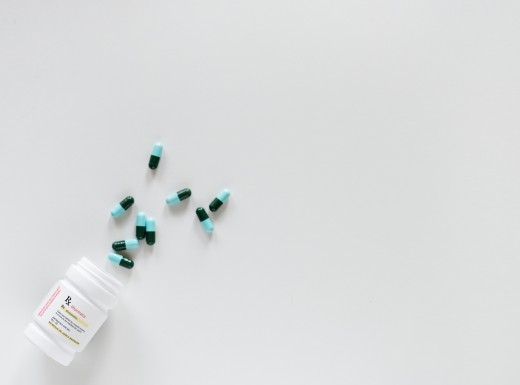
Misconception #5: Taking medication during the winter can be a great preventative for sickness.
Too many parents rush for the medicine cabinet at the first sign of a cough or cold. At any time in a child’s (or even your) life, there’s never a good time to take medication. Everyone of us have had tons of colds over the course of our lifetimes, whether you've noticed them or not. However, if you've ever visited a doctor for a cold, you are always told that you’ll just have to wait it out. There’s no medicine for the common cold.
A doctor will always tell you to get plenty of rest and drink lots of liquids in order to give your body the best shot of fighting off the illness. In fact, by giving your kids medication, or taking it yourself, this can actually do way more harm than good over the course of time. Not only can medications be making you and your child more vulnerable to sickness, but a major study of over 20,000 children suggests that giving this popular medicine even as infrequently as once per year could have a permanent, life-threatening health effect.
In fact, multiple studies have shown that children who had received Tylenol only once per year were at 70% greater risk for asthma, while those receiving it once a month or more were shockingly 540% more likely to have asthma. Taking medications could actually be making your system work even harder to fight your illness, causing you to be sick longer, or could be causing worse problems in your body. Do some research on the dangers of Tylenol and Ibuprofen in adults, much less children and babies.

Misconception #6: Dry skin is just a normal winter phenomenon, but nothing to worry about.
Itchy, flaky skin can be an irritating and unsightly consequence of cold, dry air, but dry skin, if not kept at bay, can cause you a great deal of pain, and possibly make you more prone to sickness if left untreated. It's very important to keep your skin and whole body hydrated, because when your skin becomes too dry, it can lead to small cracks that can leave your body prone to infections.
For more information on eczema, some great tips on treating it in yourself and your children, check out my article Honestly, to prevent this from happening to you, make sure that you moisturize twice daily during winter months, after you shower and before bed, as well as throughout the day for body parts that are prone to dryness, like your hands and feet. Drink plenty of water, wear appropriate clothing for the temperature, and eat a balanced, healthy diet.
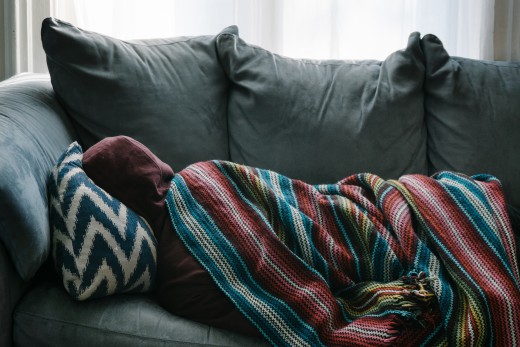
Misconception #7: You should bundle up when you have a fever in order to sweat it out.
Please don't. This is actually a very dangerous practice that could have serious consequences for your health. The truth is actually just the opposite. Bundling up, especially if you are bundling a child or infant with a fever, can raise their temperature considerably, causing even more problems. The truth is the same for adults, but the consequences aren't quite as extreme.
Your best bet is to air dry after a nice warm shower, as it will produce a cooling effect as it evaporates, and then dress in loose, lightweight clothing to stay as cool as possible. Wetting down yours, or your child's hair, putting a cool wash cloth on your head, taking a warm bath, getting plenty of rest and drinking plenty of water, will also help bring your temperature down naturally. You may hear of some really dangerous practices, like using rubbing alcohol on your child's skin, or putting them in an ice bath to bring down a fever. In order to avoid putting your kid in the ER, and instead helping them heal and be as comfortable as possible naturally, read this thorough article on Understanding and Treating Fevers.
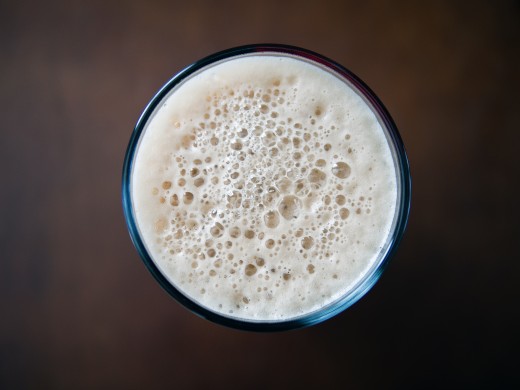
Misconception #8: You should never drink milk while sick, as it increases your mucous production.
I really don’t like this one as milk has always been exactly what I was craving when I've been sick in the past. Warm milk to soothe a scratchy throat . . . ice cream and yogurt being the only things that sound reasonable to eat when you're not feeling good . . . and something that will give you the nutrients and fullness you're looking for without actually having to chew . . .
Milk increases mucus only in children and individuals who are already allergic to milk, and wouldn't drink it anyways. “Drinking milk may make your phlegm thicker and more irritating to the throat than it would normally be, but it doesn't cause the body to make more phlegm," says James Steckelberg, M.D., consultant in the division of Infectious diseases and a professor of medicine at Mayo Medical School in Rochester, Minnesota.
In fact, he recommends that cold sufferers drink or eat dairy products such as cream-based soups, ice cream, pudding, or milk, as they are soothing on sore throats and provide calories they otherwise might not eat while they're feeling so lousy.

Misconception #9: You’re only contagious if you have a fever.
If you have a cold, you're actually the most contagious for the first 2 to 3 days, whether you have a fever or not (or are even aware that you're sick), according to the National Institutes of Health. The contagious phase of a cold virus is usually over by day 7 to 10, and many individuals that contract a cold will either have such minimal symptoms that they won’t even realize it, or they’ll have a traditional cold with coughing, sneezing and a runny nose, but will never actually get to the fever stage.
The flu can be stealthy as well. According to the CDC, most healthy adults and children are able to infect others prior to even showing symptoms of the flu, and for five days after that, with or without a fever. Instead of worrying about who is sick and who isn't, or even worse, who may be contagious, it's better just to worry about your own self-care so it doesn't matter. By drinking plenty of water, eating a balanced diet of healthy foods, getting plenty of exercise, and making sure to get plenty of rest, you will provide yourself the best environment for a strong and healthy immune system that can easily and efficiently fight off even the worst germs.
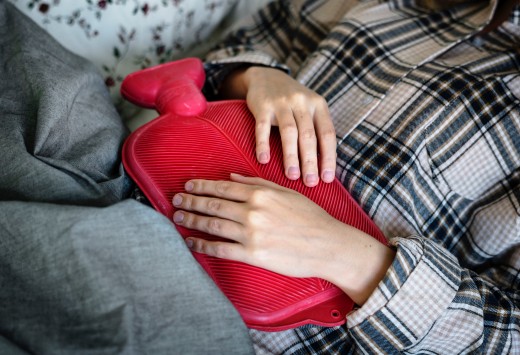
Misconception #10: Your cold could turn into the flu.
First of all, the flu and the common cold are caused by completely different viruses. So a cold can't "morph" into the flu. Although it may be difficult to tell in the beginning whether you are suffering from a cold or the flu because they both start in similar ways with similar symptoms, a cold will continue in the same way, whereas someone with the flu will likely get much worse, and develop a fever, body aches, extreme tiredness, and a dry cough.
This myth is difficult because it’s easy to believe that because they start in similar fashions, that one gets a cold and then it turns into the flu when it gets worse, but if you’ve got the flu, it started as the flu. Period.
Now let’s look at some beliefs about winter and your health that really are true.
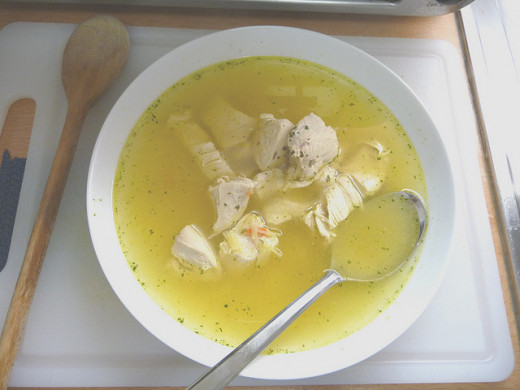
Truth #1: Eating chicken soup and drinking chicken broth can get rid of a cold.
You'd think the answer to this one would be simple -- it's a hot, salty comfort food that's easy to swallow with a sore throat. But apparently the healing powers of chicken soup go way beyond that. Strangely enough, there is actually research behind chicken soup and other hot beverages having a positive effect on the immune system. They call it neutrophil aggregation -- which means "bringing white blood cells together.” White blood cells help fight off infection in your body and are integral to helping you feel better faster.
In a study published in CHEST Journal ("Official Publication of the American College of Chest Physicians"), researchers found that chicken soup inhibits neutrophil chemotaxis, giving it anti-inflammatory properties that could help relieve the symptoms associated with upper respiratory infections. So in addition to "improving hydration and nutritional status," chicken soup has the potential of "accelerating mucosal clearance," which is science's fancy way of saying that it helps make your sniffles better.
In addition, chicken contains the amino acid cysteine, which is awfully similar to a drug called acetylcysteine, which doctors prescribe for patients with bronchitis and respiratory infections. When you look at it that way, chicken soup is actual medicine. Sort of. So, not only can it help with getting rid of that cold, and can make you feel better, it's a healthy way to get the needed nourishment when you’re sick. Awesome, huh?

Truth #2: Spending too much time in the cold can be dangerous to your health.
Although you may not have to worry about catching a cold or flu virus by spending time in the outdoors when it’s cold, there are other dangers to worry about. When your skin gets too cold, it may dry out, numb, and even blister. This is especially true if you have exposed skin out in the cold, parts of your body are wet, or if parts of your body that don’t get a lot of blood, like your hands and feet, aren’t protected properly.
If your body isn't protected properly, this can happen quickly, within 30 minutes or so, even in temperatures as high as 32°F, which is common in winters for most of the world. Once your skin blisters, it may turn black, become permanently insensitive to the heat and cold, you may suffer nerve damage, and with further exposure, you may even lose infected body parts. This is called frostbite, and not only is it very easy to get, it’s way more common than you would think.
Like getting a sunburn in the winter, because people are not aware of the dangers, this makes them even more vulnerable to it. And having wet or exposed skin anywhere on your body for any prolonged period of time, makes you that much more susceptible. This is just one reason it’s so important to cover up and protect yourself from the cold when you go outside in the winter.
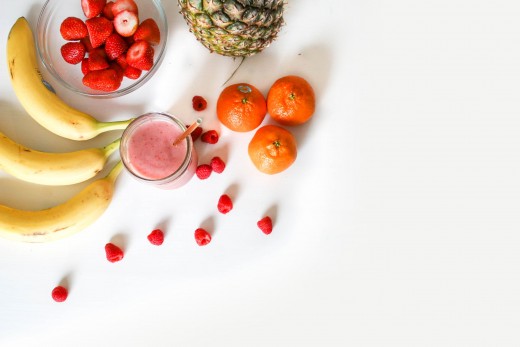
Truth #3: Vitamins can help to prevent sickness.
This is true only if you are taking them all year long, and you are taking the right ones. To try and prevent a sickness by starting a vitamin regiment just as its getting cold outside, or just as everyone is starting to get sick, is not the best way to utilize them. Like anything else you do for your health, it has to be done over the course of time to truly give your body the protection it needs to combat illness during the cold season. However, extra Vitamin C and Vitamin E are good for your body all the time, and long as you don’t try and overdo it.
However, take the quality of your vitamins into consideration. All of those popular brands that you see on the shelves of your favorite grocery store aren't all they're cracked up to be. Most of them are made from synthetic ingredients, which won't do your body a lick of good. In fact, ingesting all of those chemicals may just be causing you more problems. It's worth doing some research into quality, organic vitamins. This doesn't mean expensive. In actuality, it just means real.
Many people don't get the nutrients that they need from the foods hat they are eating, but that's a whole different article. Therefore, by taking a good quality multivitamin, some of those nutritional gaps can be filled in, giving your body what it needs to be strong and healthy, especially during the winter season. Taking vitamins may keep possible sickness from being as bad as it could be, may prolong the time before you get sick, or may help you get over the sickness faster. But nothing substitutes for a healthy diet.
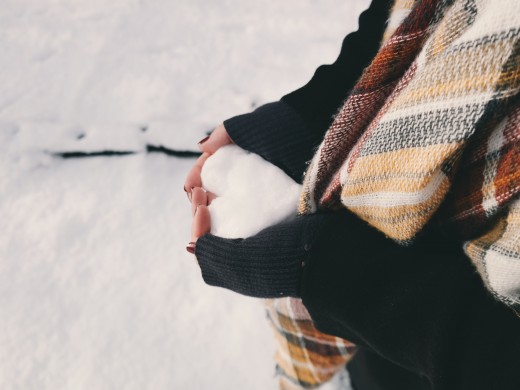
Honestly, the only way to truly keep from getting sick during this vulnerable time, is to maintain a healthy lifestyle all year round. Feed your children a healthy diet packed full of all the nutrients and vitamins a growing body needs, complete with plenty of fruits and vegetables, and full fat vitamin D milk. See my article on Teaching Kids to Be Healthy From the Beginning.
Make sure your kids are getting enough exercise and sunlight. Vitamin D from sunlight is also great for giving kids the vitamins they need to stay healthy all year long.
Make sure your kids are getting enough sleep. As their little bodies are growing from birth to around age 18, kids need at least 9-10 hours of sleep every day. Sleep is the time when their bodies can heal, resupply, and re-energize for the next day. Without it, they are at risk for getting sick. For sleep info on babies and toddlers, see my article on Sleep Training Your Toddler.
And they need to learn about healthy hygiene habits, like washing their hands often, using lotion all over their bodies when their skin is dry, sneezing and coughing into their elbows, and not touching their mouths or eyes when they are at school. A kid’s multivitamin all year long, and a little extra Vitamin E and Vitamin C in their diets during cold season won’t hurt either for strengthening their immune systems and giving their bodies the tools to fight off illness naturally.
When it comes down to it, good old fashioned prevention is going to be the key. By teaching their bodies to defend themselves, they will always be healthy. Waiting until cold season to do anything, or until they are already sick, won’t do you any good. These are great tips for keeping the adults in the house in peak condition as well. Remember, it's not just kids that get sick.
© 2013 Victoria Van Ness

